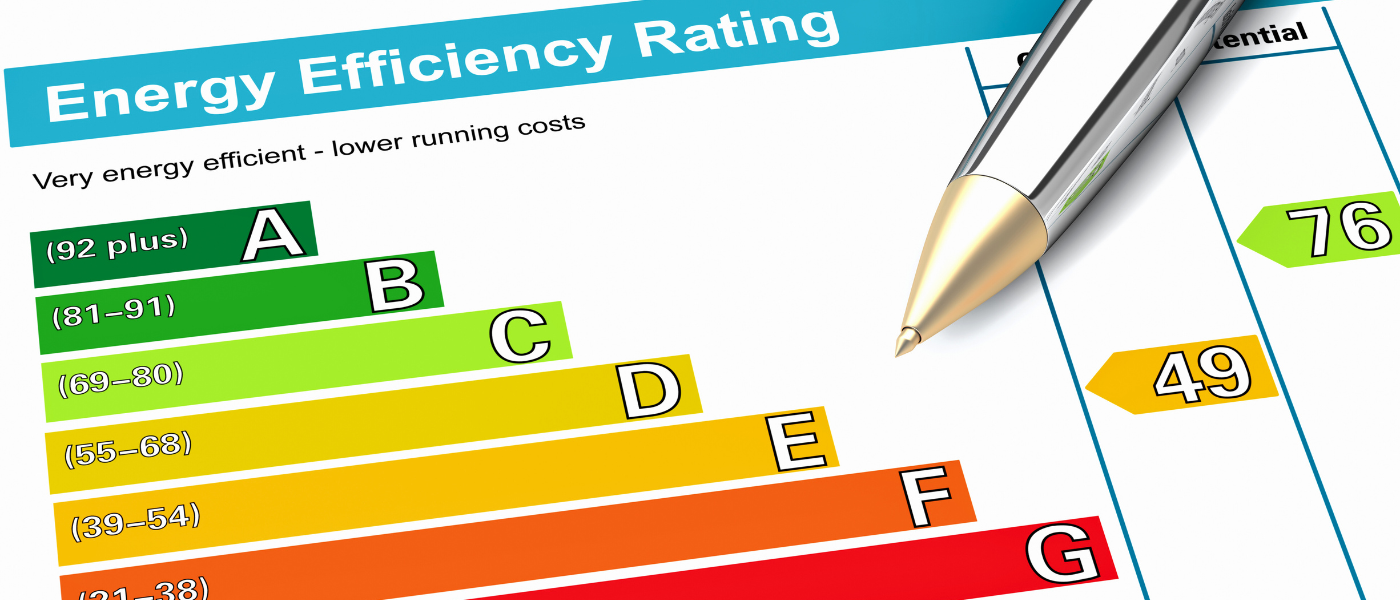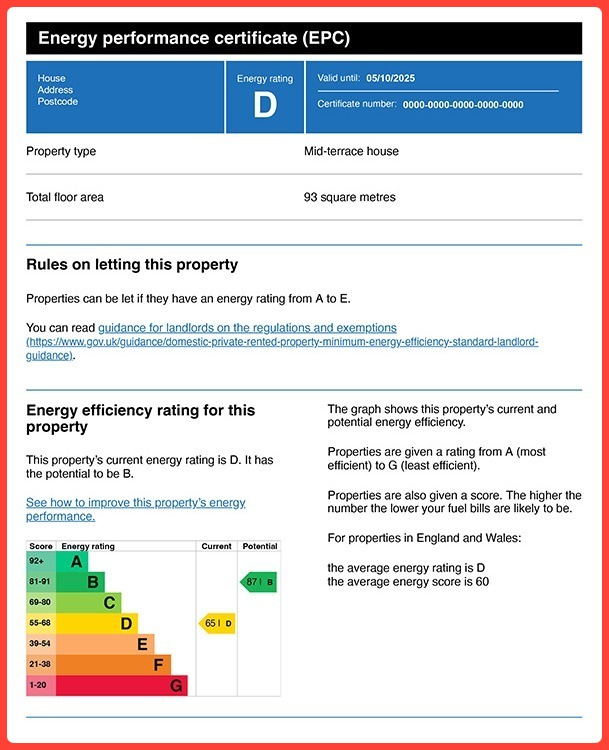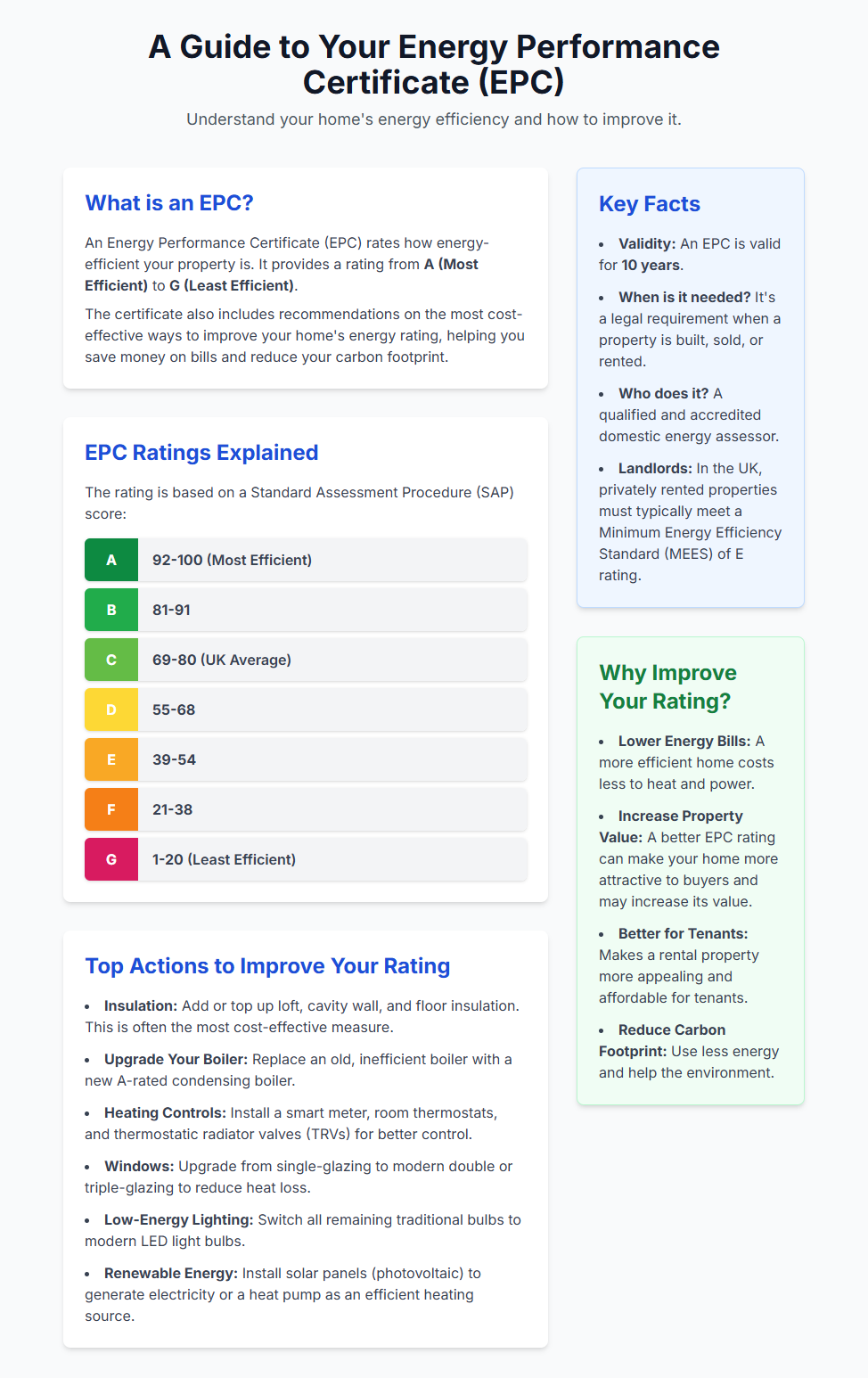What Are EPCs? Your Guide to Energy Performance Certificates

If you’re buying, selling, or renting a property in the UK, you’ll hear a lot about Energy Performance Certificates (EPCs). But what exactly are they, and why do they matter? This guide explains everything you need to know about Energy Performance Certificates, why they exist, and how they can help you save energy and money.
What is an EPC?
An Energy Performance Certificate is a document that shows a building’s energy efficiency. It rates the property from A (most efficient) to G (least efficient). This rating gives you an idea of how much energy the home uses and how much it might cost you to heat and power it.
The certificate also shows your property’s potential energy rating if you make recommended improvements, such as better insulation or a more efficient heating system.

Why Are EPCs Important?
EPCs are legally required in the UK whenever a property is built, sold, or rented. They help you:
- Understand energy costs: The certificate estimates typical energy bills based on the property’s efficiency.
- Reduce your environmental impact: EPCs identify ways to use less energy and reduce carbon emissions.
- Make informed decisions: Sellers and landlords must provide EPCs to buyers and tenants, helping them compare properties on energy performance.
- Meet legal standards: Rental properties must meet minimum energy efficiency standards, which are checked via EPC ratings.
What Does an EPC Check?
An EPC assesses:
- The building fabric, walls, roof, floors, windows, and doors, and their insulation levels.
- The heating system, ventilation, and hot water.
- Lighting efficiency.
A qualified assessor visits the property, takes measurements, and inputs data into a government-approved tool to generate the certificate.
How Long Is an EPC Valid?
An EPC lasts for 10 years unless significant energy-related improvements are made. If you upgrade your heating or insulation, it’s worth getting a new EPC to reflect the improved rating and potential savings.
How Can EPCs Help You Save Money?
EPCs come with recommendations tailored to your home. Simple steps such as draught-proofing, upgrading heating controls, or installing energy-efficient lighting can lower energy bills and make your home more comfortable.

For larger investments, like adding insulation or renewable heating systems, the EPC shows how these can boost your rating and reduce running costs over time.
What Are the Legal Obligations?
- Sellers and landlords must provide a valid EPC before marketing a property.
- Rental properties in England and Wales must meet at least an E rating under Minimum Energy Efficiency Standards (MEES).
- Failing to provide an EPC can result in fines and delays in your property transaction.
What Should You Look for in Your EPC Rating?
- Ratings from A to C are considered good energy performers.
- Ratings D to G indicate higher energy use and potential for improvement.
- Aim to choose or create homes with higher ratings for lower running costs and a smaller carbon footprint.
The Importance of an EPC
EPCs vital tools to help you save money, reduce environmental impact, and make smarter property decisions. Whether you’re a homeowner, buyer, landlord, or tenant, understanding EPCs puts you in control of your energy use and costs.

If you want advice on improving your property’s energy performance or want to learn more about the systems and products that can help, contact 21 Degrees today.







